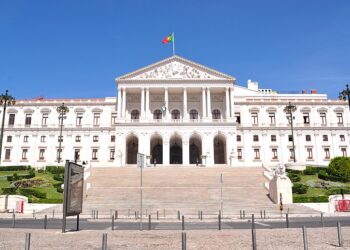It’s often said that young people are the citizens of tomorrow. But we only have to look ahead to the forthcoming European election to realise that young people are already active citizens, shaping the policy agenda by themselves. Five EU member states, comprising a quarter of the EU’s population – Belgium, Germany, Austria, Greece and Malta – have extended the right to vote to all over-16s.
Many argue that this is long overdue, and that other countries should follow. The past two decades have emphasised the vulnerability of young people to global shocks, whether financial crises, COVID or labour market fluctuations. This is principally why the integration and mainstreaming of youth in policymaking has gathered pace since the Lisbon treaty was adopted.
This trend resulted in 2022 being declared the European Year of Youth, which had four main goals: to highlight how the green and digital transitions offer opportunities for young people; promoting policies and programmes that prioritise youth; encouraging young people to become engaged, active citizens in their communities; and imprinting a youth perspective across EU policies.
The European Year of Youth was the spur to the European Economic and Social Committee to redirect the focus of its work towards young people and their aspirations and needs.
During that year, I authored an own-initiative opinion for the EESC on ‘The EU Youth Test’, one of the key points of which was to address “the lack of youth democratic representation and the lack of a youth perspective outside of the traditional youth policy domain”. We can see the gradual extension of voting rights to more 16 and 17-year-olds in 2024 as a direct response to the Committee’s work.
However, it was important for the EESC to look beyond the twelve months allocated to this initiative and to make its legacy permanent. In December 2022, the Committee adopted a resolution on this specific matter, seeking to build on the year’s gains through mainstreaming and empowerment initiatives, and participatory mechanisms for young people and youth organisations at all levels.
The following year, the EESC Bureau established an EESC Youth Group, which aims to better integrate the voice of young Europeans in the Committee’s work, and more broadly in the EU decision-making process, in a structured and meaningful way. One of the ways we do this is by working with civil society organisations not only at European level but at national level too.
The French Economic, Social and Environmental Council (ESEC) is among the most active of these national partners. I first worked with the Council in 2022 when it published a wide-ranging opinion containing 21 recommendations on youth engagement and democratic participation, especially with regard to electoral involvement. Creating and nurturing these synergies is an important way to streamline common approaches and make the day-to-day work of the Committee more relevant across Europe. As my work in favour of young people has intensified, I have become ever more impressed at the vigour, innovation and optimism of our young people, despite the many challenges they face.
There is one thing worse than the regrettably low participation of young people in our public life, and that is no participation at all. Today’s youth face a harder path towards education, jobs and financial security than their parents, but they are also at the cutting edge of the digital and green transitions – two key policy areas where their interests and expertise are best utilised.
Our task as policymakers is not simply to listen to young people, but to elevate them and their voices to positions of equality and responsibility. The European election will therefore be the next step in a lasting programme of youth mainstreaming that promises to make the future of our common European project more secure.
*Katrīna Leitāne is a Chair of the Ad-hoc youth group of the European Economic and Social Committee
English version by the Translation Service of Withub









